|
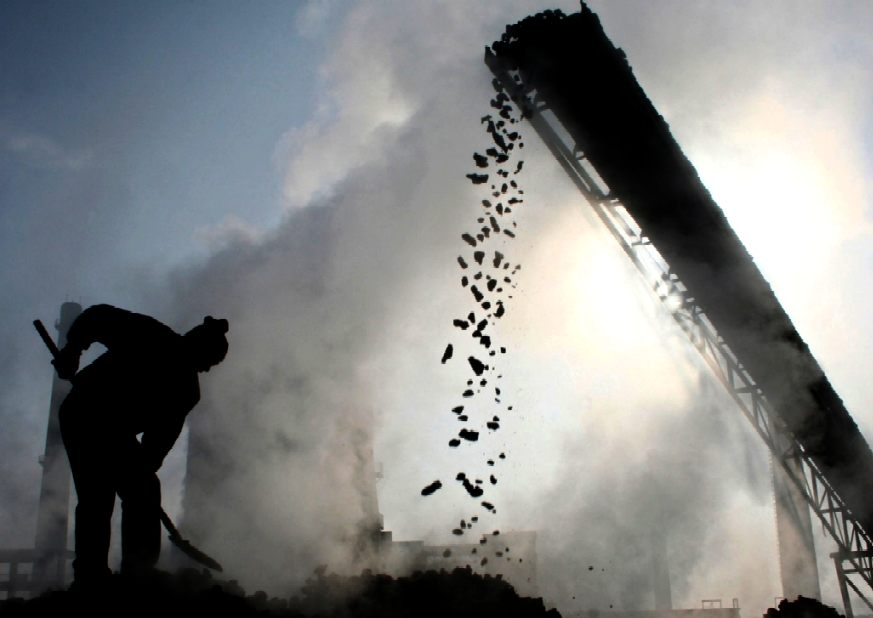
COAL
MINING - Is the exact the opposite of carbon sinking. Where
responsible corporations are looking to lock carbon away to prevent
global warming, energy companies are digging up locked carbon and
releasing into the atmosphere. Sustainable development is about
installing practices for a truly Circular Economy. Investors should not
encourage companies that have been hiding behind lobbyists who created
enough of an information smog to allow the likes of MobilExxon to keep
on polluting the atmosphere. Greedy corporations will keep on killing
the planet for profit all the while politicians allow them to do so.
INTERNATIONAL
ENERGY AGENCY - THE GUARDIAN 9 JULY 2015 The world’s fossil fuel companies risk wasting
billions of
dollars of investment by not taking global action to fight climate change seriously, according to the chief economist of the International Energy Agency (IEA).
Fatih Birol, who will take the top job at the IEA in September and is one of the world’s most influential voices on energy, warned that companies making this mistake would also miss out on investment opportunities in clean energy.
Coal giant Peabody recently dismissed global warming as “an environmental crisis predicted by flawed computer models”, while another major coal producer Glencore Xstrata said governments would fail to implement measures to cut carbon emissions, as has oil and gas major ExxonMobil.
Birol, speaking at a major climate science conference in Paris ahead of a crunch UN summit in the city in December, said: “We see some moves from energy companies in the direction of sustainable development. However, it is not at the level you would like to see. If they think that their businesses are immune to the impacts of climate policy, they are making a strategic mistake.”
“Any energy company in the world, whatever they do - oil, gas, renewables, efficiency, coal - climate policies will impact their business,” said Birol.
“So in order not to make the wrong investment decisions, in terms of making the investment decisions which may not bring the right returns, or in terms of missing investment opportunities, businesses may need to take climate policies and the impact for their businesses more seriously. Without solving the carbon
[emissions] in the energy sector, we have no chance to solve the climate change problem.”
The World Bank and Bank of England have already warned of the serious risk climate action poses to trillions of dollars of fossil fuel investments and the G20 is investigating the risks. The think-tank Carbon Tracker has estimated that over $1tn (£0.6tn) of
oil investments and $280bn of gas investments would be left uneconomic if the world’s governments succeed in their pledge to limitglobal warming to 2C.
Birol said there was some cause for optimism in tackling climate change, with increasing renewables, energy efficiency and action in China helping to curb emissions. But Professor Ottmar Edenhofer, chief economist at the Potsdam Institute for Climate Impact Research, said: “Emissions are rising and rising and rising, with an increasing growth rate over the last decade.”
Edenhofer warned of a “global coal renaissance”, particularly in fast-growing poor nations. He said six of the 10 fastest growing carbon emitters are from sub-saharan Africa, led by Congo, Benin and Angola. He said that, even if technology to capture and store carbon on a large scale is developed, two-thirds of all coal resources and a third of all oil and gas would have to be kept in the ground to limit climate change to 2C. Without carbon capture and storage, 90% of coal and two-thirds of oil and gas would have to remain buried.
Edenhofer said this would not happen without a global price being put on carbon pollution. “As a Catholic, I believe in miracles, but I do not rely on them,” he said. “We need carbon prices to reflect the most limited resource of the 21st century – the limited disposal space for CO2 in the atmosphere.”
He said national leaders often saw taxing carbon as “political suicide” but he argued that they needed to recognise the positive impact the revenues generated by carbon taxes could have. “Even just removing fossil fuel subsidies would allow us to provide universal access to clean water and electricity in parts of the world,” he said.
Professor Frank Geels, from the University of Manchester, told the Paris conference that many technological transitions involve “creative destruction”, with new businesses replacing old ones.
“But we have not focused enough on the destruction part. The fossil fuel companies are some of the most powerful companies in the world and it is going to be very difficult to persuade them to keep it in the ground, but not impossible,” he said. “In many transitions you need to compensate the losers, or they will fight tooth and nail.” Geels cited the example of the Dutch government paying for workers in closing coal mines to be retrained.
Professor Ken Caldeira, at the Carnegie Institution for Science in California, said the public were vital to forcing the transition to clean energy.
“Politicians do not lead, they follow,” he said. “We need to reach a social tipping point where people do not think it is OK to build another smokestack. It is only when the average person does not think it is OK that change happens.” He said there were instances of such changes in social acceptability, including the introduction of gay marriage in the US and abolition of
slavery.
EXXON
KNEW ABOUT CLIMATE CHANGE IN 1981, FUNDING TO ARGUE DENIAL According
to an article in the Guardian
newspaper, published on the 8th of July 2015, ExxonMobil, the world’s biggest oil company, knew as early as 1981 of climate change – seven years before it became a public issue, according to a newly discovered email from one of the firm’s own scientists. Despite this the firm spent millions over the next 27 years to promote climate denial.
The email from Exxon’s in-house climate expert provides evidence the company was aware of the connection between fossil fuels and climate change, and the potential for carbon-cutting regulations that could hurt its bottom line, over a generation ago – factoring that knowledge into its decision about an enormous gas field in south-east Asia. The field, off the coast of Indonesia, would have been the single largest source of
global warming pollution at the time. 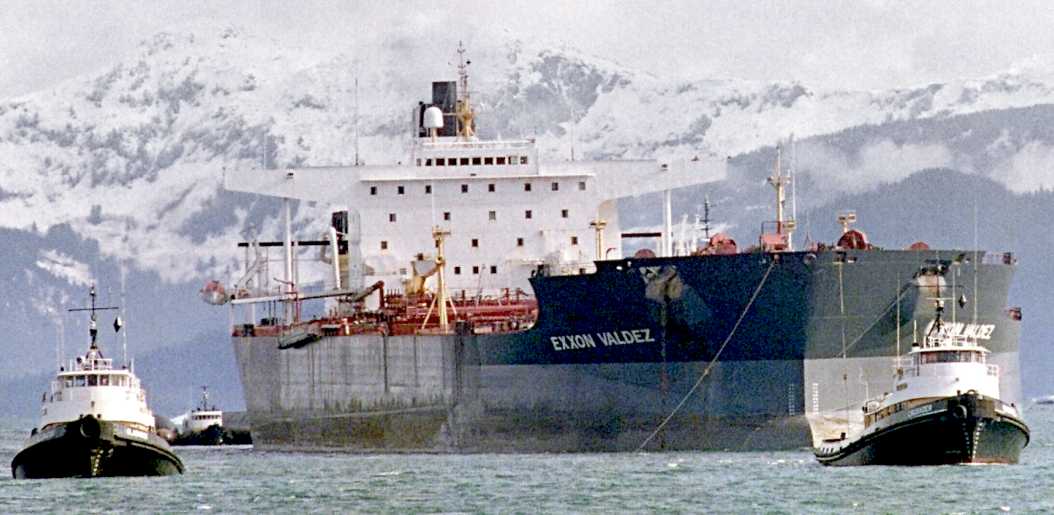
“Exxon first got interested in climate change in 1981 because it was seeking to develop the Natuna gas field off Indonesia,” Lenny Bernstein, a 30-year industry veteran and Exxon’s former in-house climate expert, wrote in the email. “This is an immense reserve of natural gas, but it is 70% CO2,” or
carbon
dioxide, the main driver of climate change.
However, Exxon’s public position was marked by continued refusal to acknowledge the dangers of climate change, even in response to appeals from the Rockefellers, its founding family, and its continued financial support for climate denial. Over the years, Exxon spent more than $30m on
think tanks and researchers that promoted climate denial, according to Greenpeace.
Exxon said on Wednesday that it now acknowledges the risk of climate change and does not fund climate change denial groups.
Some climate campaigners have likened the industry to the conduct of the tobacco industry which for decades resisted the evidence that smoking causes
cancer. 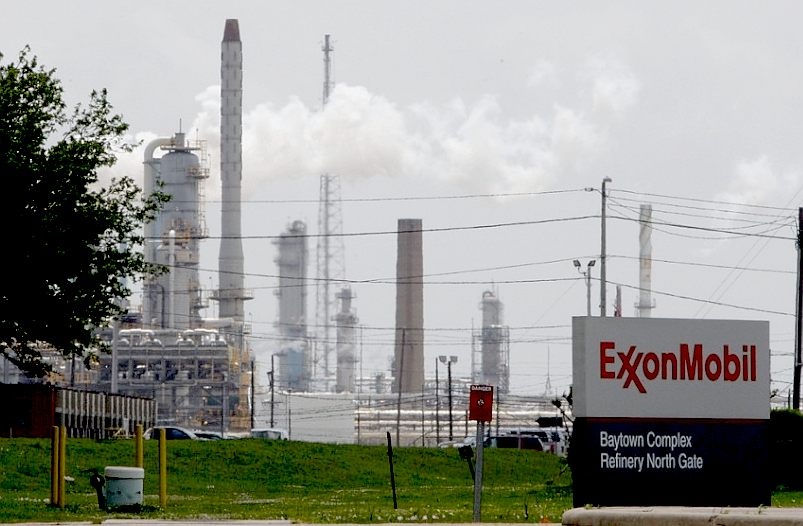
THE
EMAIL - LENNY BERNSTEIN'S FULL TEXT MESSAGE Below is the text of an email from Lenny Bernstein to the director of the Institute for Applied and Professional Ethics at Ohio
University, Alyssa Bernstein (no relation), who had asked for ideas to stimulate students for an ethics day announced by the Carnegie
Council:-
Alyssa’s right. Feel free to share this e-mail with her. Corporations are interested in environmental impacts only to the extent that they affect profits, either current or future. They may take what appears to be altruistic positions to improve their public image, but the assumption underlying those actions is that they will increase future profits. ExxonMobil is an interesting case in point.
Exxon first got interested in climate change in 1981 because it was seeking to develop the Natuna gas field off Indonesia. This is an immense reserve of natural gas, but it is 70% CO2. That CO2 would have to be separated to make the natural gas usable. Natural gas often contains CO2 and the technology for removing CO2 is well known. In 1981 (and now) the usual practice was to vent the CO2 to the atmosphere. When I first learned about the project in 1989, the projections were that if Natuna were developed and its CO2 vented to the atmosphere, it would be the largest point source of CO2 in the world and account for about 1% of projected global CO2 emissions. I’m sure that it would still be the largest point source of CO2, but since CO2 emissions have grown faster than projected in 1989, it would probably account for a smaller fraction of global CO2 emissions.
The alternative to venting CO2 to the atmosphere is to inject it into ground. This technology was also well known, since the oil industry had been injecting limited quantities of CO2 to enhance oil recovery. There were many questions about whether the CO2 would remain in the ground, some of which have been answered by Statoil’s now almost 20 years of experience injecting CO2 in the North Sea. Statoil did this because the Norwegian government placed a tax on vented CO2. It was cheaper for Statoil to inject CO2 than pay the tax. Of course, Statoil has touted how much CO2 it has prevented from being emitted.
In the 1980s, Exxon needed to understand the potential for concerns about climate change to lead to regulation that would affect Natuna and other potential projects. They were well ahead of the rest of industry in this awareness. Other companies, such as Mobil, only became aware of the issue in 1988, when it first became a political issue. Natural resource companies – oil, coal, minerals – have to make investments that have lifetimes of 50-100 years. Whatever their public stance, internally they make very careful assessments of the potential for regulation, including the scientific basis for those regulations. Exxon NEVER denied the potential for humans to impact the climate system. It did question – legitimately, in my opinion – the validity of some of the science.
Political battles need to personify the enemy. This is why liberals spend so much time vilifying the Koch brothers – who are hardly the only big money supporters of conservative ideas. In climate change, the first villain was a man named Donald Pearlman, who was a lobbyist for Saudi Arabia and Kuwait. (In another life, he was instrumental in getting the US Holocaust Museum funded and built.) Pearlman’s usefulness as a villain ended when he died of lung cancer – he was a heavy smoker to the end.
Then the villain was the Global Climate Coalition (GCC), a trade organization of energy producers and large energy users. I was involved in GCC for a while, unsuccessfully trying to get them to recognize scientific reality. (That effort got me on to the front page of the New York Times, but that’s another story.) Environmental group pressure was successful in putting GCC out of business, but they also lost their villain. They needed one which wouldn’t die and wouldn’t go out of business. Exxon, and after its merger with Mobil ExxonMobil, fit the bill, especially under its former CEO, Lee Raymond, who was vocally opposed to climate change regulation. ExxonMobil’s current CEO, Rex Tillerson, has taken a much softer line, but ExxonMobil has not lost its position as the personification of corporate, and especially climate change, evil. It is the only company mentioned in Alyssa’s e-mail, even though, in my opinion, it is far more ethical that many other large corporations.
Having spent twenty years working for Exxon and ten working for Mobil, I know that much of that ethical behavior comes from a business calculation that it is cheaper in the long run to be ethical than unethical. Safety is the clearest example of this. ExxonMobil knows all too well the cost of poor safety practices. The Exxon Valdez is the most public, but far from the only, example of the high cost of unsafe operations. The value of good environmental practices are more subtle, but a facility that does a good job of controlling emission and waste is a well run facility, that is probably maximizing profit. All major companies will tell you that they are trying to minimize their internal CO2 emissions. Mostly, they are doing this by improving energy efficiency and reducing cost. The same is true for internal recycling, again a practice most companies follow. Its [sic] just good engineering.
I could go on, but this e-mail is long enough. 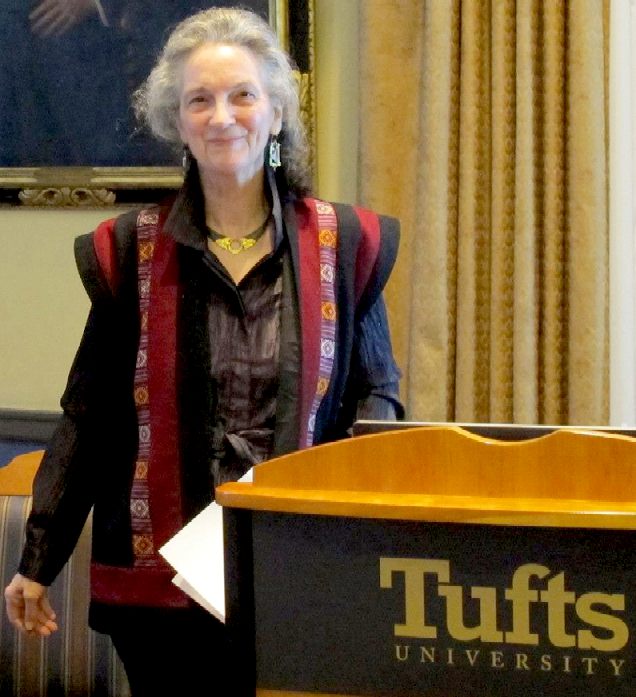
ROCKEFELLER
PHILANTHROPY - GUARDIAN MARCH 2015
Members of the Rockefeller family tried to get ExxonMobil to acknowledge the dangers of climate change a decade ago – but failed in their efforts to reform the oil giant.
In letters, lunch meetings, and shareholder resolutions, the descendants of John D Rockefeller, founder of the oil empire that eventually became Exxon, sought repeatedly to persuade the company to abandon climate denial and begin shifting their business towards clean energy.
“We were really begging the company to look harder at what they were doing. They were still into climate denial and funding deniers and really against any positive steps,” said Neva Rockefeller Goodwin, a co-director of the Global Development and Environment Institute at Tufts University, who helped lead the reform effort.
The outreach effort, led mainly by Rockefeller’s great grandchildren, began with a lunch meeting in 2004 with Exxon’s then head of investor relations.
“This was the family trying to get into a friendly conversation with ExxonMobil, feeling we have a strong historical connection with that company,” said Goodwin. “We wanted to start talking with the company about their view of the future and how they could be a constructive player as well as part of the problem.”
The company was blindsided. David Henry, then head of investor relations, was “stunned” at the family’s concern about climate change, according to Goodwin’s recollection of events.
“The head of investor relations was really surprised to find we didn’t love Exxon as it was but thought changes might be a good idea,” she said.
Over the next few years, Goodwin and about a dozen other Rockefellers launched three separate shareholder resolutions pressing Exxon to recognise climate change and invest in renewable energy. The cousins also sought an independent chairman, believing it would make the company more responsive.
At the time the oil company was the main funder of dozens of front groups and researchers rubbishing any link between the burning of fossil fuels and climate change – or denying climate change was occurring at all.
Among the recipients was Willie Soon, the Harvard-Smithsonian researcher who received more than $1m (£0.7m) from industry, according to documents obtained by Greenpeace through freedom of information filings.
In a report released on the eve of their 2008 annual general meeting, the oil company pledged to stop funding groups that promote climate denial.
However, the company continued funding Soon for three more years. The documents show that Exxon gave Soon an additional $76,106 from 2008 to 2010, despite claiming to have stopped.
The shareholder resolutions were easily defeated.
The US environmentalist Bill McKibben says the failure of the family’s efforts is telling and signals the limits of shareholder engagement with some fossil fuel companies.
“It makes a very clear point that engaging with fossil fuel companies to somehow get them to change their ways is unlikely to work if the family of the founder can’t get Exxon to shift.”
The Rockefeller heirs also tried private and public pressure. Nearly 100 direct descendants also signed a letter expressing concern as investors and begging the company to stop funding climate deniers, Goodwin said.
In 2006, another cousin, Senator Jay Rockefeller, a West Virginia Democrat, and Senator Olympia Snowe, a Maine Republican, wrote a letter to the incoming Exxon chief executive Rex Tillerson, urging the company to stop funding climate deniers.
“ExxonMobil’s longstanding support of a small cadre of global climate change sceptics, and those sceptics’ access to and influence on government policymakers, have made it increasingly difficult for the United States to demonstrate the moral clarity it needs across all facets of its diplomacy,” the letter said.
“It is our hope that under your leadership, ExxonMobil would end its dangerous support of the ‘deniers’.”
Most of the Rockefellers’ personal fortunes are held in trusts set up in the 1930s.
The family retains only a tiny fraction of shares in Exxon. But the stand taken by the Rockefellers – at a time when Exxon was under attack from campaign groups for its support of climate denial – rankled company executives who had expected family members to be allies, Goodwin said. “They were shocked to find this family that had a strong link with them, and that they expect to find a great friend and admirer ... had such a negative view.”
But even with the weight of that historical connection Exxon was still not persuaded to change.
“I was pretty discouraged. Exxon has an extremely strong culture of believing that they are right and know what they are doing and really don’t need to listen to anybody else,”
Goodwin went on. “It was clear that we didn’t have an ability to make more of a dent in that.”
When the Guardian asked for a comment on the Rockefellers’ attempts to engage with the company it issued this statement. “ExxonMobil will not respond to Guardian inquiries because of its lack of objectivity on climate change reporting demonstrated by its campaign against companies that provide energy necessary for modern life, including newspapers.”
Ken Cohen, ExxonMobil’s vice president for public and government affairs has previously been dismissive of the concept of fossil fuel divestment, saying that it is “out of step with reality”.
“There are no scalable alternative fuels or technologies available today capable of taking the place of fossil fuels and offering society what those energy sources provide,” he wrote in a blog in October.
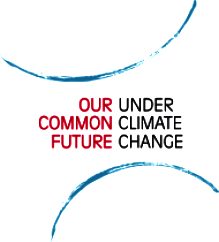
OUR
COMMON FUTURE UNDER CLIMATE CHANGE
International Scientific Conference 7-10 JULY 2015
Paris, France
The
International Scientific Conference “Our Common Future under Climate
Change” took place at UNESCO
and UPMC (Paris) in July 2015.
This four-day conference was to be the largest forum for the scientific
community to come together ahead of the 21st UNFCCC
Conference of the Parties (COP21), which will be hosted by France
in December 2015 (“Paris Climat 2015”). Building on the results of IPCC
5th Assessment Report (AR5), the Conference aimed to address key
issues concerning climate change in the broader context of global
change. It was designed to offer an opportunity to discuss solutions for
both mitigation and adaptation issues. The Conference also welcomed Side
Events organized by different stakeholders.
The conference is organized under the umbrella of ICSU,
Future Earth, UNESCO
and major French research institutions, with the support of the French
Government. The Conference has four overarching objectives:
1 - Provide state-of-the-art scientific knowledge on climate change, one year after the release of IPCC AR5: physical basis of climate change, impacts, adaptation and vulnerability, mitigation, storylines and scenarios. Special emphasis will be placed on explaining, translating and disseminating the key results of IPCC AR5 and major developments thereafter. This Conference offers the opportunity to progress in our understanding of the multiple interactions between climate change, the geosphere, the biosphere and human societies, at a range of spatial and temporal scales. Special attention will be given to trans-disciplinary research and to emerging concepts.
2 - Explore a wide range of pathways combining climate change mitigation and adaptation, and sustainable development. Building on forecasts, storylines and scenarios, the Conference will discuss uncertainties; identify areas of consensus, and map controversies while taking stock of the multiple connections to development and environmental challenges within a large diversity of local, national and regional contexts.
3 -
Assess the potential for evidence-based solutions to climate change challenges. Scientific evidence will be assessed to explore a large array of potential technological, social and institutional solutions to some of the challenges created by climate change. Potential solutions will be discussed in connection with the broader challenges of sustainable development, environmental conservation, equity, and cultural diversity.
4 - Contribute to a science-society dialogue. En route to COP21, the Conference will offer all interested parties (negotiators, policy-makers, businesses, NGOs, public at large) an up-to-date panorama of the insights that science can provide on climate change and how to tackle it. With the post-2015 agenda in sight, the Conference also offers a venue for scientists, policy-makers, businesses and NGOs to debate the research agenda for the coming years (both via the conference itself and side events organized by stakeholders).

CONTACTS
Conference CFCC-2015
Université Pierre et Marie Curie (UPMC)
B.C. 106 - 4 place Jussieu
75252 Paris - France
For
scientific issues
For
Side Events issues
For
local issues
For
funding issues
For
media issues
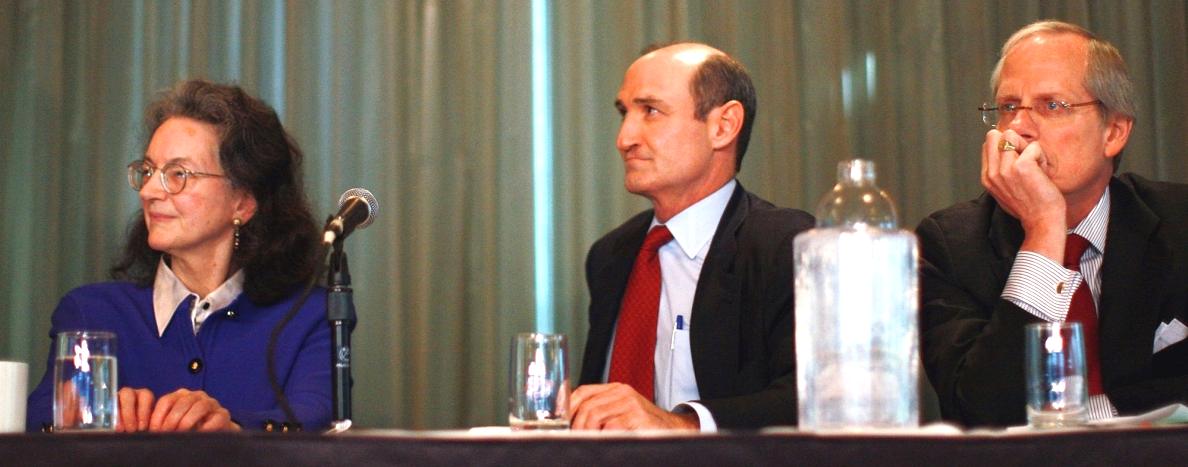
LINKS
& REFERENCE
Corporate
ExxonMobil ExxonMobil
UK Wikipedia
Exxon Common
Future International Scientific Conference Paris 2015 The
Terramar Project IEA fossil fuel companies risk billions by not taking
climate change seriously
The
Guardian 2015 march Rockefeller family tried and failed ExxonMobil accept
climate change
The
Guardian 2014 December 14 Lima-climate-change-talks-reach-agreement The
Guardian 2014 Lima climate talks fail to reach agreement
The
Guardian
rapid-carbon-emission-cuts-severe-impact-climate-change-ipcc-report BBC
news
science-environment
Indian
Express United Nations panel adopts landmark climate report
The
Guardian environment 2014 Sept 21 climate change protest melbourne
london new york
The
Guardian environment 2015 June 29 Barack Obama turns tables in davi
attenborough climate change interview The
Guardian environment 2015 July 9 fossil fuel firms risk billions ignoring
climate change IEA https://en.wikipedia.org/wiki/Exxon http://www.commonfuture-paris2015.org/ http://www.theguardian.com/environment/2015/jul/09/fossil-fuel-firms-risk-billions-ignoring-climate-change-iea
http://theterramarproject.org/thedailycatch/iea-fossil-fuel-companies-risk-billions-by-not-taking-climate-change-seriously/
http://corporate.exxonmobil.com/
http://www.exxonmobil.co.uk/ http://www.theguardian.com/environment/2015/mar/27/rockefeller-family-tried-and-failed-exxonmobil-accept-climate-change http://www.theguardian.com/environment/2015/jun/29/barack-obama-turns-tables-in-david-attenborough-climate-change-interview
https://www.edx.org/course/making-sense-climate-science-denial-uqx-denial101x#! http://skepticalscience.com/
http://www.theguardian.com/environment/2014/dec/11/lima-climate-talks-fail-agreement-single-paragraph-deal
http://www.theguardian.com/environment/2014/nov/06/climate-denier-jim-inhofe-in-line-for-senates-top-environmental-job
http://www.theguardian.com/environment/2014/nov/02/rapid-carbon-emission-cuts-severe-impact-climate-change-ipcc-report http://www.bbc.co.uk/news/live/science-environment-29820051 http://www.ipcc.ch/
http://www.un.org/en/
http://indianexpress.com/article/world/world-others/united-nations-panel-adopts-landmark-climate-report/

SEAVOLUTION
- The
patent (applied for) Bluefish zero carbon development platform, is a proposal for a
robotic ocean workhorse
capable of relatively high speeds with a suitable hullform, or for ocean
cleaning duties as seen above. These designs could lead to clean ocean transport. The robot
ship uses no diesel fuel to perform whatever function it is programmed to
carry out, such as monitoring the oceans autonomously (COLREGS
compliant) 24/7 and 365 days a year - only possible with the revolutionary (patent) energy harvesting system. The
hullform could be adapted for zero carbon cruise liners. We would welcome
the opportunity to discuss the potential with international fleet operators.
It is estimated that this vessel
pays for itself in fuel saved every ten years. That is suggestive that
cruise ships may be run more profitably if zero
carbon, by design.
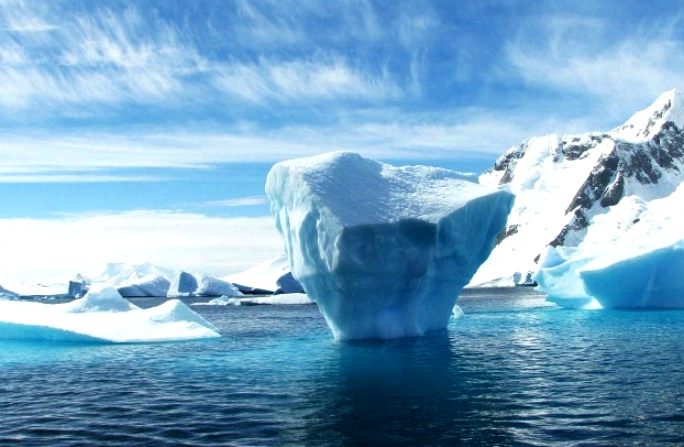
REPORT
MARCH 2015 - The Antarctic shelf seas are a climatically and ecologically important region, and are at present receiving increasing amounts of freshwater from the melting of the Antarctic Ice Sheet and its fringing ice shelves primarily around the Antarctic Peninsula and the
Amudsen Sea. In response, the surface ocean salinity in this region has declined in past decades. The team concluded that accelerating discharge from the
Antarctic Ice Sheet has had a pronounced and widespread impact on the adjacent
sub-polar seas over the past two decades.
|








